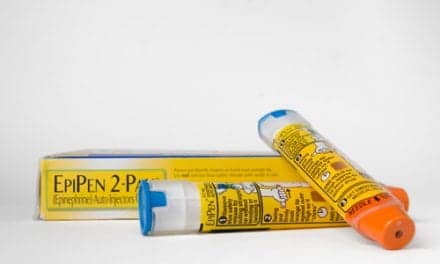A new study sheds light on why patients with mild asthma have such difficulty breathing during hot, humid weather. The findings, appearing in the American Journal of Respiratory and Critical Care Medicine, show that patients who inhaled ipratropium, a drug occasionally used for asthma, before breathing in hot, humid air were able to prevent airway constriction that study participants without asthma did not experience in the same environment.
Ipratropium prevents airway muscle contraction and increases airflow to the lungs. According to the study’s authors, its success in combating the air temperature response suggests that hot, humid air triggers asthma symptoms by activating airway sensory nerves that are sensitive to an increase in temperature.
“We know that breathing cold, dry air induces airway constriction in asthmatics,” said Don Hayes, MD, primary author of the study and medical director of the Lung and Heart-Lung Transplant Program at Nationwide Children’s Hospital. “But the effects that temperature increases have on airway function in these patients are generally overlooked. We know very little about the mechanisms that cause symptoms when asthmatic patients are exposed to hot, humid air.”
For the study, Hayes and his colleagues enrolled patients with mild asthma and healthy controls in a study to assess their pulmonary reaction to hot, humid air. Six asthmatic patients (ranging from 21 years of age to 26) and six healthy subjects (between 19 and 46) were asked to breathe into a device designed to deliver air at certain desired temperatures and humidity levels. The device produced a humidified gas mixture of air either hot or room temperature. Subjects breathed via a mouthpiece into this free stream of air for 4 minutes and were asked to pant. Investigators measured participants’ airway resistance before and for 16 minutes immediately following the challenge. They also measured body temperature, heart rate, arterial blood pressure, and oxygen saturation before and afterward.
Results showed that breathing of hot, humid air triggered an immediate increase in airway resistance in patients with mild asthma, but caused either only a very small or no response in healthy subjects. Breathing hot, humid air also triggered consistent coughs in those with asthma. When the asthmatic participants used an ipratropium aerosol before the challenge, they did not experience airway constriction.
“We don’t fully understand the mechanisms underlying these responses,” said Hayes, adding that further research is needed to completely understand how patients’ bodies react to hot and humid air. Overall, he says that this data provides evidence to support that ambient air temperatures and humidity levels are very important in asthma and this research introduces potential new drug targets for the treatment of asthma.
Source: Nationwide Children’s Hospital








